Sensors already equip a range of tools to enhance monitoring capacity for conservation. Some of the higher bandwidth technologies, like camera traps and acoustic monitoring systems, have been essential elements of the conservation toolkit for decades, and thus have enough users that we've created dedicated WILDLABS groups to address them. But a whole range of lower bandwidth sensors beyond these core technologies are being increasingly integrated into conservation monitoring systems, and offer rich new insights into the wildlife and ecosystems we're all working to protect. As with many technologies, cost and access have historically been challenges to the adoption of new sensors, but with low-cost and open-source solutions on the rise, we're excited to see what the future of this space holds.
Getting Started with Sensors:
- Watch Shah Selbe's Tech Tutors episode on scaling FieldKit, an open-source conservation sensor toolbox, from a project to a successful conservation tech product.
- Check out our Virtual Meetup about Low-Cost, Open-Source Solutions in conservation tech, including a talk by Alasdair Davies on the Arribada Initiative's work with thermal sensors in early warning systems.
- For a more in-depth introduction, watch the first video in our datalogger mini-series: Freaklabs: How do I get started with Arduino?
In this group, you'll meet others who are using and innovating diverse sensors in their work, discuss ways to make sensors more effective & accessible for conservationists, learn about what sensors are already helping us accomplish in the field, and have the opportunity to ask and answer questions. Join this group to get started!
Header image: Emma Vogel, University of Tromsø
Max Planck Institute of Animal Behavior
Behavioral Ecologist
- 1 Resources
- 1 Discussions
- 14 Groups
Wildlife Drones
Wildlife Drones has developed the world’s most innovative radio animal-tracking system using drones so you can track your radio-tagged animals like never before.
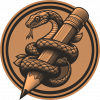

- 18 Resources
- 8 Discussions
- 32 Groups
International Union for the Conservation of Nature (IUCN)
Key Biodiversity Areas Programme Officer, IUCN
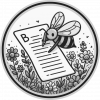
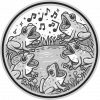

- 0 Resources
- 89 Discussions
- 8 Groups
- @raquelgo
- | (she/her/hers)
- 0 Resources
- 0 Discussions
- 17 Groups
American Museum of Natural History
- 1 Resources
- 8 Discussions
- 10 Groups
- @Andrew_Hill
- | He/Him
Open Acoustic Devices
I am co-founder of Open Acoustic Devices, the creators of AudioMoth and HydroMoth. My background is Electronic Engineering and Computer Science.
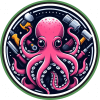

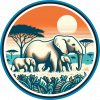
- 0 Resources
- 10 Discussions
- 2 Groups
- 0 Resources
- 0 Discussions
- 17 Groups
PhD Candidate at University College London. Research and develop wireless sensor networks for biodiversity monitoring. Currently working on a software package for AI bioacoustics classifiers on edge device.
- 0 Resources
- 2 Discussions
- 9 Groups
- 0 Resources
- 0 Discussions
- 1 Groups
Saint Louis Zoo
- 0 Resources
- 0 Discussions
- 13 Groups
- @alex_rogers
- | He/him/his
University of Oxford
I am a Professor of Computer Science at the University of Oxford where I work on developing novel low-cost conservation technology (including AudioMoth and SnapperGPS).


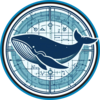
- 0 Resources
- 21 Discussions
- 3 Groups
- @PshemekZ
- | he/him/his
IT + nature
- 0 Resources
- 7 Discussions
- 8 Groups
In the third part of his series of case studies focusing on preventing human-wildlife conflict within communities, Aditya Gangadharan looks at how one village in North Bengal maximised the potential of an early alert...
10 April 2020
The Monterey Bay Aquarium Research Institute's MARS ocean observatory may someday make conducting deep-sea research more accessible and affordable thanks to Deep-Sea Connect, their new wireless system engineered to ...
31 March 2020
Community Announcement
Our second WILDLABS Community Call took place on April 1st to continue the discussion started by Ben Tregenna in our Data Science group, in which he suggested the idea of submitting a collaborative entry to the X-Prize...
30 March 2020
Trapped inside during the COVID-19 quarantine and looking to engage with conservation science without leaving your desk? Citizen science projects like those on Zooniverse offer a great opportunity to impact scientific...
18 March 2020
Machine learning is rapidly expanding as a useful field research tool, but its complexity can intimidate even seasoned tech conservationists. Edge Impulse aims to make machine learning solutions accessible,...
16 March 2020
Article
Aditya Gangadharan's latest case study looks at how sensor technology can provide solutions for human-wildlife conflict instances along the Indo-Bhutan border. This project, which aimed to get the local community...
11 March 2020
Using technology in the field allows us to innovate new solutions to very old problems like human-wildlife conflict, but are you giving enough consideration to how your high-tech tools fit into long-term plans? Before...
9 March 2020
2020 marked our fifth year holding our annual #Tech4Wildlife Photo Challenge, and our community made it a milestone to remember. Conservationists took to Twitter last week to share their best high-tech snapshots from...
4 March 2020
The 2020 Tusk Awards are now accepting nominations of outstanding individuals who have made a significant impact on conservation in Africa. These nominations offer the rare and exciting opportunity to honor your peers...
3 March 2020
Are you ready for the Plastic Data Challenge? This global contest wants your innovative ideas for improving the plastic waste management and recycling chain in South and Southeast Asia. Participants can consider...
3 March 2020
Technology is rapidly changing the way communities monitor wildlife movement and prevent or mitigate human-wildlife conflict. This case study from Appiko delves into field testing of the open source sensor warning...
25 February 2020
The Arribada Initiative is back with an update on their thermal elephant alert system which aims to reduce human-elephant conflict (HEC). The success of their system rests on the ability of a camera to accurately...
17 February 2020
November 2023
event
16 Products
Recently updated products
117 Products
1 R&D Projects
81 Organisations
Recently updated products
Recently updated R&D Projects
Recently updated organisations
| Description | Activity | Replies | Groups | Updated |
|---|---|---|---|---|
| Thanks for sharing this event, Jenny! Looks really interesting, hope to see you there. |
|
Sensors | 8 years 11 months ago | |
| Hi John and Adam, I've been hearing a lot about Oxford Nanopore Technologies and MinION over the last few months, and while it sounds fanastic, it's been... |
|
Sensors | 8 years 11 months ago | |
| Sensory: BBC Wildlife Director John Downer & the technology of 'spy-cam' filmmaking from Getty Images on Vimeo.Small Cameras, Big... |
|
Sensors | 9 years ago | |
| Hello all, I've been reading a lot about advancements in using thermal imaging technology for wildlife monitoring. I know... |
|
Sensors | 9 years ago | |
| Latest news about this project was picked up by the BBC world service for a short interview http://www.bbc.co.uk/programmes/p03nwl8g You can also read more here: http://... |
|
Sensors | 9 years 1 month ago | |
| Hi everyone, I'm working on a citizen science project forcused on using aquaculture for conservation and ecological... |
|
Sensors | 9 years 2 months ago | |
| That's great Jason. I think your approach can be very successful. I'm a little bit familiar with Wild Book through my contacts at IBEIS, who I believe you... |
|
Sensors | 9 years 2 months ago | |
| I was amused to read about a flock of pigeons just released in London to tackle pollution. The flock was equipped with pollution... |
|
Sensors | 9 years 2 months ago |
Text Messages from Teenage Gannets
25 April 2016 12:00am
Eggs Eggs and more Eggs
2 March 2016 1:05pm
Underwater sensors
18 March 2016 12:39am
Could Big Data Have Saved Cecil the Lion?
4 January 2016 12:07pm
12 February 2016 7:16pm
It's very interesting what you say about the strength of a name. I do think that anthropomorphism can be a good thing in the case of conservation. By giving Cecil a name and a life story (incidentally a very cosy British name, which is interesting in itself), it brings the issue into emotional focus. We are attracted to characters and stories, not data. The plight of a named lion strikes a stronger chord than the numbing statistic of 600 "un-named" lions dying every year.
So do we care more about nature if we make anthropomorphise it? I think yes, as it creates a relatable personal connection with our own lives.
I'd like to get in touch with you next week as this is an area I am very interested in exploring and I hope I can be of help. Paul
14 March 2016 4:37pm
We're just starting to look a lot at Storytelling in Wildbook (http://www.wildbook.org).
This is what a data profile looks like in Wildbook:
http://www.whaleshark.org/individuals.jsp?number=A-001
While we allow for basic anthropomorphism via nicknaming, it's still a very data centric view of what a combined group of reserchers knows about the animal.
We have experimented with social media profiles which interestingly have an analogous data schema as mark-recapture:
http://fb.wildme.org/wildme/public/profile/WS-A-001
But we want to go ever further with storytelling mediums (e.g., story maps?) that can be automated from scientific data input, especially where cit sci data and reserch data can be reliably mixed.
So in addition to a name, we want to build a relationship through a portrayal of its life history and even potentially a view of the social network of the animal participates in (if such data can be shared safely.).
16 March 2016 7:22am
That's great Jason. I think your approach can be very successful. I'm a little bit familiar with Wild Book through my contacts at IBEIS, who I believe you work with quite closely. I'd love to see how the work we are doing at Internet of Elephants can incorporate whale shark data. I'll message you separately to discuss.
An Internet of pigeons?
14 March 2016 4:16pm
Ecotech Grants from the Captain Planet Foundation
18 February 2016 12:00am
Bringing Conservation Technology to Life
17 February 2016 12:00am
Wildlife Crime Tech Challenge: Winners Announced!
22 January 2016 12:00am
Deep Coral Reef Exploration and Discovery: Two-way Technological Flow
24 December 2015 12:00am
Cheap Space, DIY Imaging and Big Data
21 December 2015 12:00am
The Impact of the Internet of Things
10 December 2015 12:00am
The Social Lives of Conservation Technologies and Why They Matter
2 November 2015 12:00am



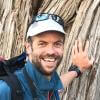

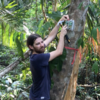

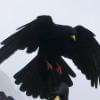


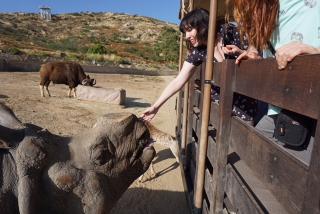
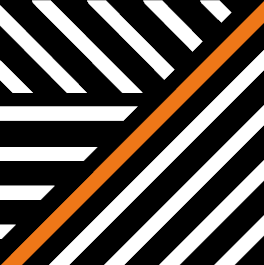


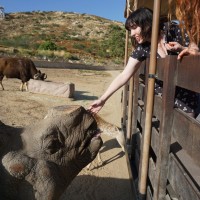

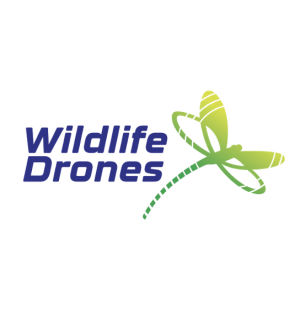

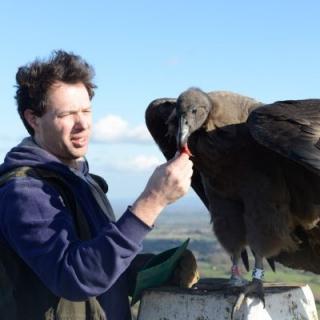


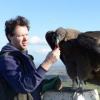

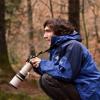

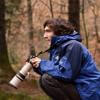

24 March 2016 4:42pm
Latest news about this project was picked up by the BBC world service for a short interview
http://www.bbc.co.uk/programmes/p03nwl8g
You can also read more here:
http://spectrum.ieee.org/geek-life/hands-on/build-an-electronic-vulture-egg